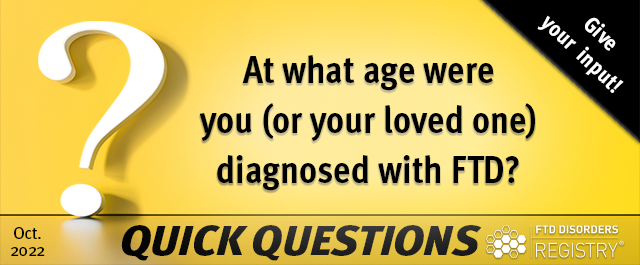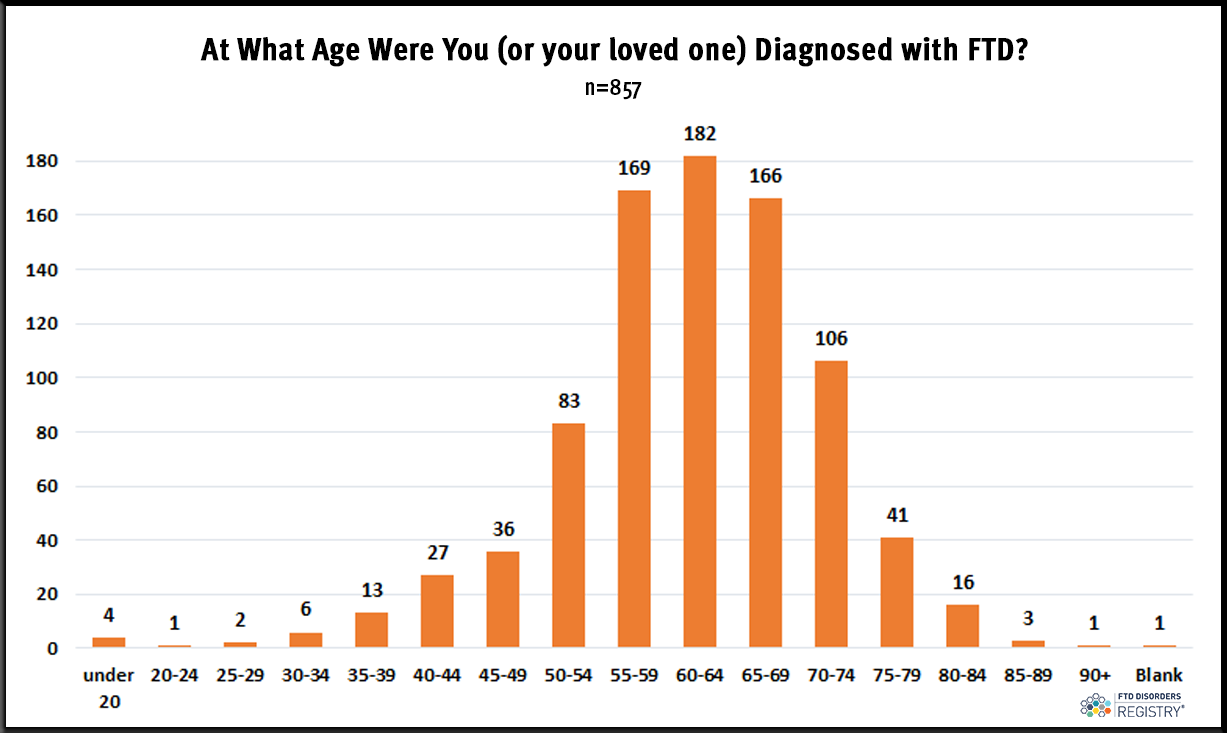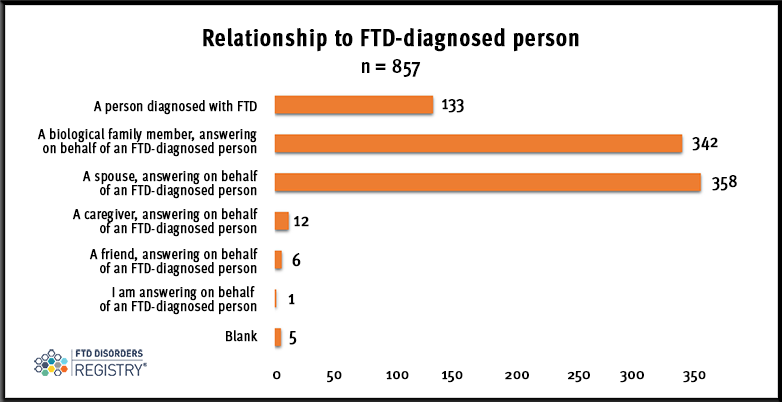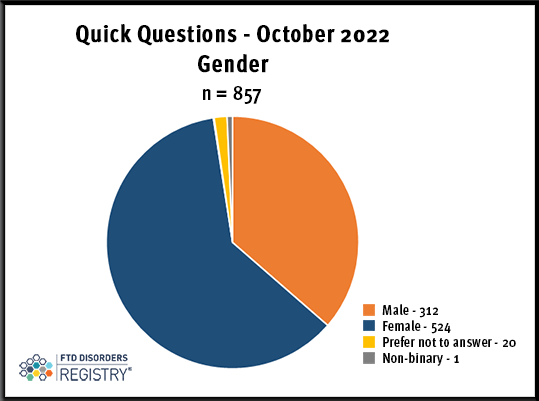PRESS & NEWS
Quick Question October 2022 Results: At What Age Were You (or Your Loved-One) Diagnosed with FTD?

The age range that most people received a diagnosis of frontotemporal degeneration (FTD) was between 60 and 64 years (182 people), according to...
The age range that most people received a diagnosis of frontotemporal degeneration (FTD) was between 60 and 64 years (182 people), according to those who responded to the FTD Disorders Registry’s October 2022 poll. This was closely followed by 55-59 (169 people) and 65-69 (166 people).
There were 857 people who answered our October question: At what age were you (or your loved one) diagnosed with FTD? The majority who replied were family members (40% biological relatives and 42% spouses).
There continues to be almost twice as many women as men who answer our Quick Question survey questions (October 2022 = 36% men and 61% women). However, when looking at the responses from spouses answering on behalf of their FTD-diagnosed loved one, the gender demographics are much closer with 43% males (153) and 54% females (194).
Responses were received from people in 17 countries around the world with the most coming from the United States (762) followed by Canada (47), Australia (15), and the United Kingdom and Northern Ireland (10).
Additionally, answers came from people in all 50 U.S. states as well as the District of Columbia (6). The top five states with the highest number of respondents were California (72), New York (50), Texas (48), New Jersey (42), and Florida (39).
RESULTS
The following charts and lists are based on 857 submissions.

Age of diagnosis results:
- 0.5% reported Under 20 (4)
- 0.1% reported 20-24 (1)
- 0.2% reported 25-29 (2)
- 0.7% reported 30-34 (6)
- 1.5% reported 35-39 (13)
- 3% reported 40-44 (27)
- 4% reported 45-49 (36)
- 9.7% reported 50-54 (83)
- 20% reported 55-59 (169)
- 21% reported 60-64 (182)
- 20% reported 65-69 (166)
- 12% reported 70-74 (106)
- 4.8% reported 75-79 (41)
- 1.8% reported 80-84 (16)
- 0.5% reported 85-89 (3)
- 0.1% reported 90+ (1)
- 0.1% Blank (1)

Identify yourself results:
- 15.5% A person diagnosed with FTD (133)
- 40% A biological family member, answering on behalf of an FTD-diagnosed person (342)
- 42% Spouse, answering on behalf of an FTD-diagnosed person 358)
- 1.4% Caregiver, answering on behalf of an FTD-diagnosed person (12)
- 0.5% Friend, answering on behalf of an FTD-diagnosed person (6)
- 0.1% Answering on behalf of an FTD-diagnosed person (1)
- 0.5% Blank (5)

Gender results:
- 36% Male (312)
- 61% Female (524)
- 0.5% Non-binary (1)
- 1.5% Prefer not to answer (20)
Together we can find a cure for ftd
The FTD Disorders Registry is a powerful tool in the movement to create therapies and find a cure. Together we can help change the course of the disease and put an end to FTD.
Your privacy is important! We promise to protect it. We will not share your contact information.



